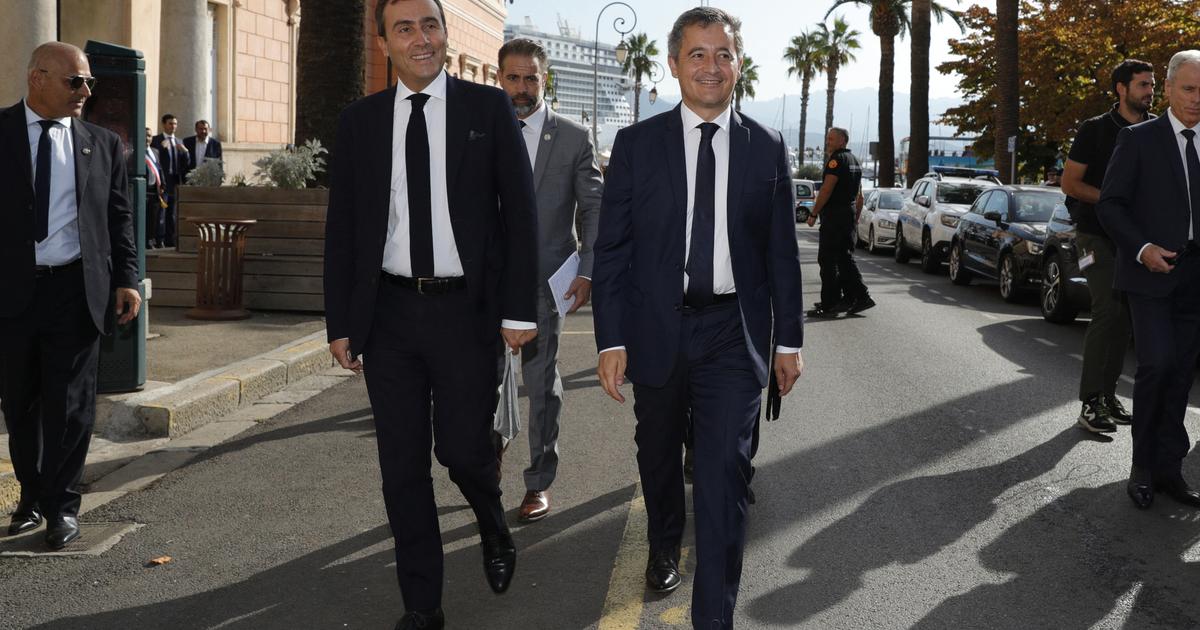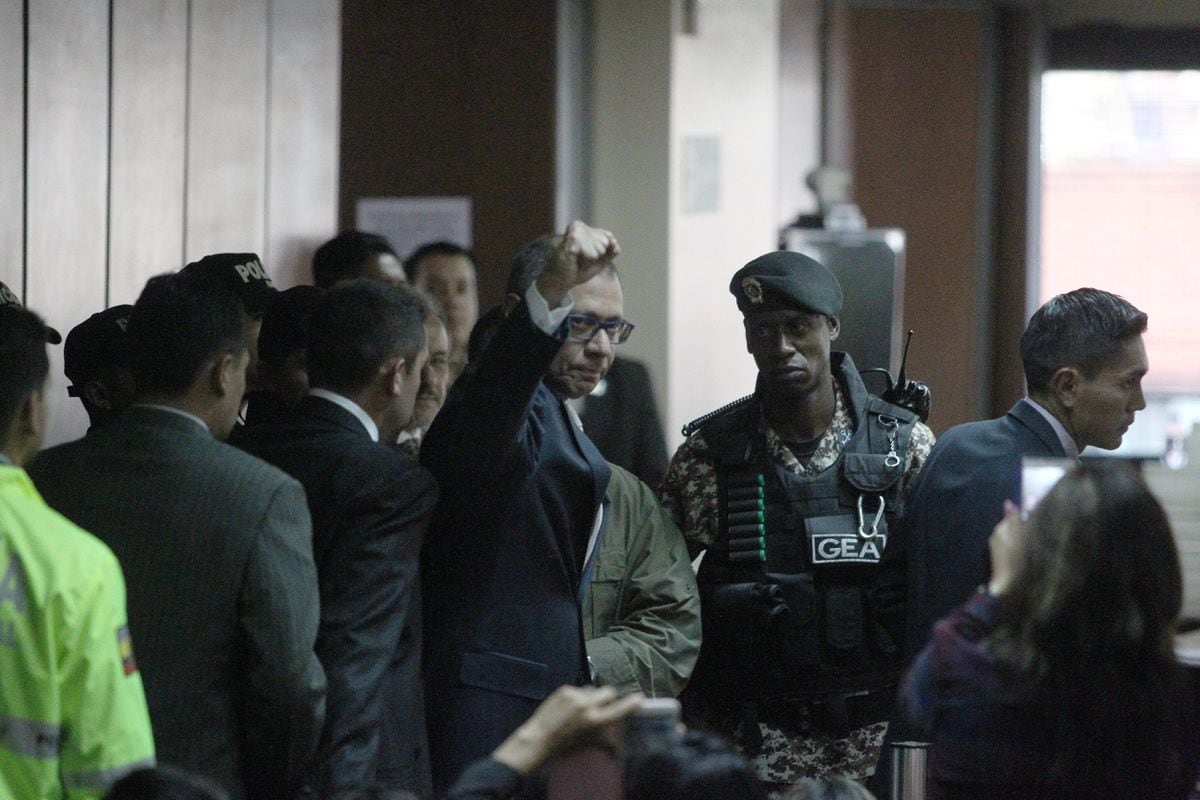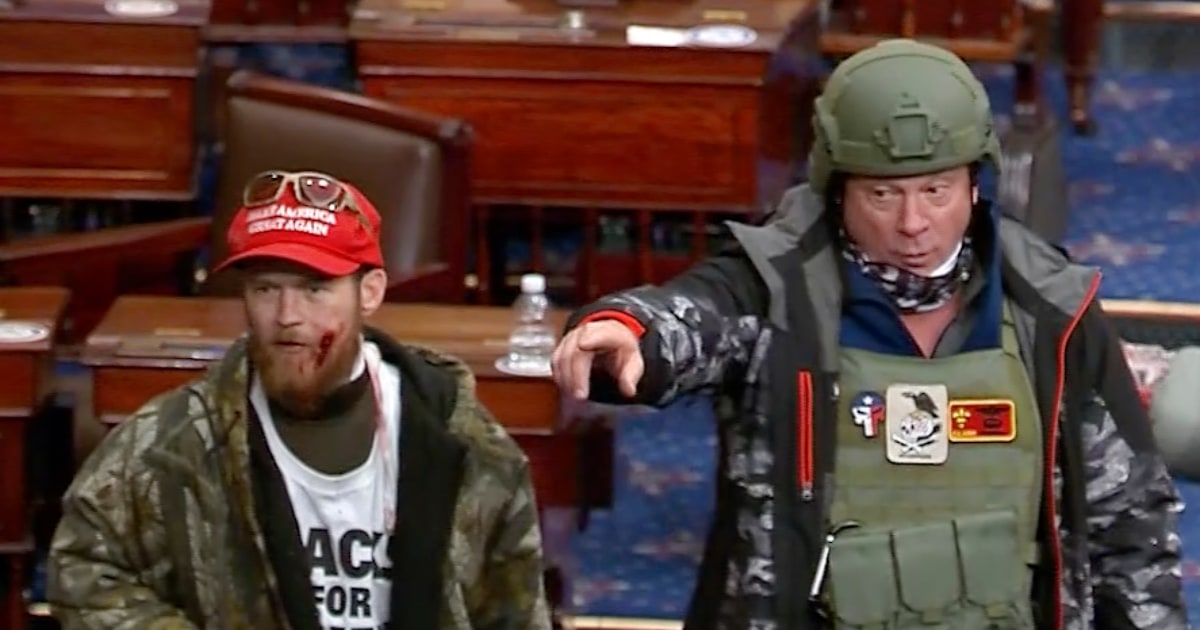Meeting of the Plenary of the Constitutional Court after the incorporation of its new magistrates, on December 15, 2021. KIKE PARA
The Constitutional Court will try to speed up its tasks by holding plenary sessions every 15 days, starting from the one that will take place the last week of this month.
The plans of the court of guarantees for this first quarter of the year intend to close the landing phase of the new magistrates -after the controversial renewal of last November-, in order to enter the matter without haste but without pause.
After the January plenary session, therefore, there will be two more in February and another two in March. In total, five during the entire quarter, an average of activity higher than in the last two years of the pandemic. The objective is to address the pending appeals in order to resolve them by the widest possible majorities, avoiding the trench warfare that the plenary sessions became during the last stretch of the previous mandate.
There is still no pre-established agenda for said plenary meetings, in part because the agreed plan is going to involve an important novelty in this regard, consisting of the reinforcement of the powers of the president of the court, Pedro González-Trevijano, of the sector conservative. Trevijano has reserved the power to include or not in the agenda of each plenary session the draft sentences that are prepared.
Without the
nihil obstat
of the president, no draft sentence will access the plenary sessions, nor will they vote without said green light.
Until now, on the other hand, the most common was that the rapporteur proposed the moment when a matter should be considered sufficiently deliberate and, therefore, could be put to a vote in plenary.
This had sometimes led to the appearance of a certain factor of surprise.
It will not be possible, for example, that a relevant draft ruling, such as that of the
Celáa law,
that was among those proposed in the last plenary session of the previous Constitutional Court —and it was not approved due to lack of time—, is submitted to formal deliberation without an advance discussion on its content. The intention is to remove the prospect of rulings passed by six to five votes, with an exhibition of divisions and internal struggles between the magistrates. It is not a question that a result of this type - such as the one produced in the ruling on the first state of alarm, of which Trevijano himself was the rapporteur - is unrepeatable. But both the president of the court and his vice president, Juan Antonio Xiol, want to avoid the reissue of the tensions that erupted then.
In this context, court sources explain that some important rulings - such as the one relating to the abortion law - could be pending until the next renewal of the court, scheduled for June this year. Such a hypothesis would occur if in the previous contacts between the components of the court it is revealed that there is no consensus or a large majority to approve the text that the new speaker, the conservative magistrate Enrique Arnaldo, who long ago showed himself critical of current legislation.
These measures were discussed and agreed in an informal meeting of the plenary session that took place in the Constitutional Court before Christmas, after the new magistrates took office. At that meeting - described in the institution itself as "coffee talk" - it was agreed to start a stage of "Benedictine recollection", in the expression of the aforementioned sources. The purpose of so much reservation was that the court of guarantees disappeared for a time from the main headlines of the media.
The priority after the Christmas break will be to respond to the appeals presented by those convicted in the case of the
process
against the denial of the challenges that they raised against magistrates Enrique Arnaldo and Concepción Espejel, arguing their affinity with the PP, a party that He proposed to access the court in its recent renovation. In both cases, a lack of impartiality was alleged, while a parallel initiative also challenged the president of the court - appointed in 2013 by the Government of Mariano Rajoy (PP) - if he did not abstain from participating in the challenge directed against Arnaldo, for the friendship between the two.
The Constitutional Court responded to these challenges - which would have left the court without a quorum - with a very resounding order, approved unanimously, in which it is emphasized that "no one can be disqualified as a judge because of their ideas." In the resolution —which implies a change in doctrine on this matter— it is added that “ideological affinity does not in itself constitute a cause for disqualification”.
The order was a swerve for the court on this issue, due to the ease with which attempts to separate magistrates had been successful up to now, as in the case of Pablo Pérez-Tremps, challenged by the PP in the case of the Statute ruling in 2010, or more recently in those of Antonio Narváez and Cándido Conde-Pumpido, questioned by the independence leaders to keep them away from the sentences of the
procés
, for having criticized, although with different intensity, on the 1-O.
First plenary session of the year at the end of January
In view of the recent Constitutional order on the appeals of those convicted in the cause of the
procés
, the chances that these appeals will prosper are very remote, if not null.
Challenges will be resolved in plenary session that the court will hold the last week of this month.
The most important rulings - on the educational reform of the
Celáa law
, the euthanasia law, or the abortion law, as well as the prohibition of appointments by the General Council of the Judicial Power once its mandate has concluded, or the oath formulas of the deputies upon accessing the post— will be successively included in the corresponding agendas.
Always, after trying internal pacts.






/cloudfront-eu-central-1.images.arcpublishing.com/prisa/F5GRV7HUTZACRHBAVHSBBMKKFM.jpg)




/cloudfront-eu-central-1.images.arcpublishing.com/prisa/KMEYMJKESBAZBE4MRBAM4TGHIQ.jpg)



